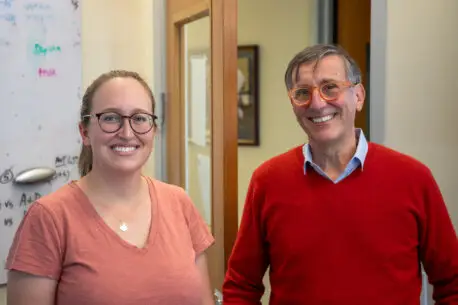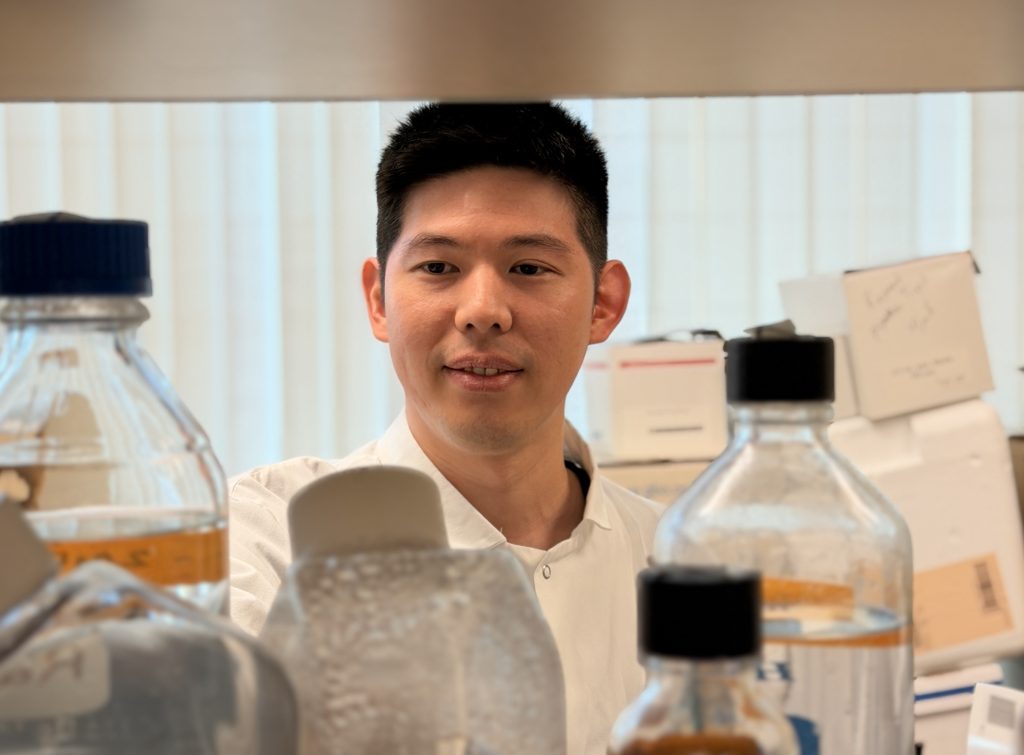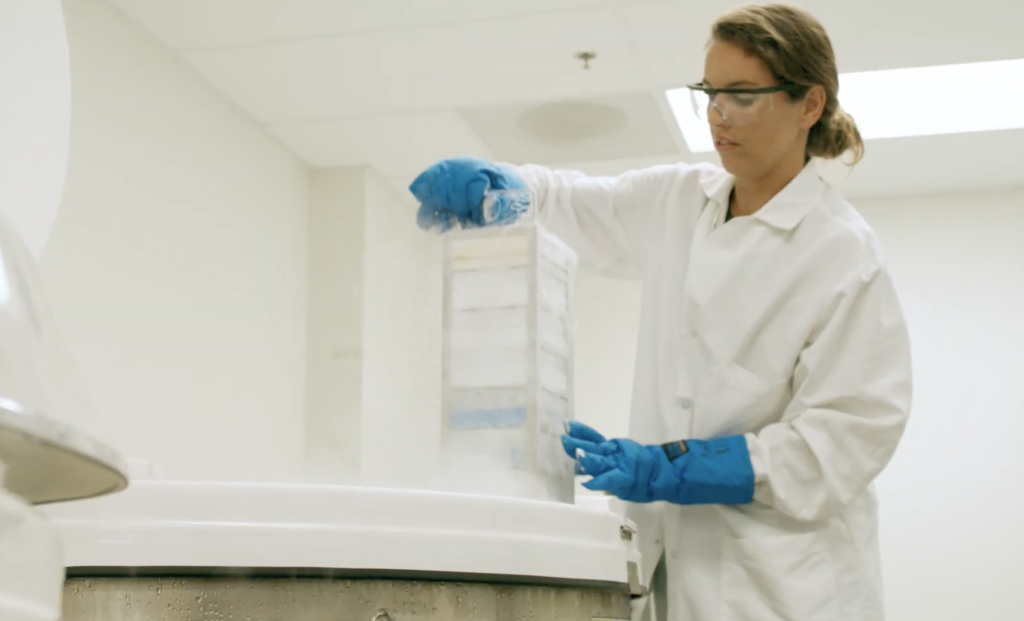LA JOLLA, CA—The Italian Ministry of Foreign Affairs and International Cooperation has named Alison Tarke, Ph.D., a postdoctoral researcher at La Jolla Institute for Immunology (LJI), the North American winner of the “Science, She Says! Award” in recognition of her work to strengthen ties between scientists in Italy and the United States. This award is given to an early career, female scientist each year.

“This award is a huge honor,” says Tarke, “I’m very touched to have my work recognized by the Italian Ministry of Foreign Affairs and International Cooperation.”
Tarke is an immune system researcher whose work has shed light on how T cells respond to SARS-CoV-2 infection. Throughout the COVID-19 pandemic, Tarke worked closely with LJI Professor Alessandro Sette, Dr.Biol.Sci., to share findings and important research tools with leading Italian researchers.
“Alison’s research has been very, very impactful, and her efforts have catalyzed a cultural exchange between the United State and Italy,” says Sette.
Tarke was born in the United States, and she has conducted most of her research in San Diego. Yet, she credits Italians for her love of science. She says it all started when she graduated from college and took a position at a San Diego biotech led by a pair of Italian scientists. “That position was where I got my love of science—and for wanting to do work that could make an impact for people with different diseases,” says Tarke.
It wasn’t long before Tarke also fell in love with Italian culture and San Diego’s Italian community. “The Italian community here is very close-knit and very unique,” says Tarke.
In 2019, Tarke began her graduate studies under the supervision of Professor Gilberto Filaci, Ph.D., with the University of Genova (UniGe), in Italy; however, her graduate work was immediately interrupted by the COVID-19 pandemic. That didn’t halt her research. Tarke joined LJI’s Sette Lab, and she continued her Ph.D. program remotely with the University of Genova while being jointly supervised by Sette and Filaci.
Tarke studied immune responses to SARS-CoV-2 and worked to develop a novel method for measuring activation of virus-specific T cells in patient samples. This technique has since been embraced by immunologists and expanded to other emergent viral infections, such as mpox.
Once she had developed her method, Tarke ensured immediate exchange of protocols and assisted University of Genova scientists as they completed their data analysis. Tarke also led the scientific component of a multi-center SARS-CoV-2 study that included LJI, the University of Genova, the University of Pavia, and the University of Rome “Tor Vergata.”
Tarke says LJI was the perfect hub for these COVID-19 research projects. Sette had already been working closely with Italian scientists, which helped Tarke quickly connect with the wider Italian scientist community. “International collaborations are especially important in the context of global challenges like the COVID-19 pandemic,” says Tarke.
Tarke also worked with Sette to generate special reagents, to measure SARS-CoV-2-specific T cell responses. The LJI team has since shared these reagents with over 180 labs worldwide, including several Italian institutes, and ten peer-reviewed publications have resulted from these U.S.-Italy collaborations. Tarke’s publications include a 2022 Cell study into how T cells recognized the SARS-CoV-2 Omicron variant and a 2023 Cell Reports Medicine study that revealed how T cells can learn to cross-react to many kinds of coronaviruses.
Going forward, Tarke will continue to collaborate with University of Genova scientists as she contributes to research efforts led by Sette and LJI Research Assistant Professor Alba Grifoni, Ph.D., to investigate T cell responses to many types of viruses with pandemic potential.
“It’s really amazing to be at the beginning of my career and to have already worked with so many impressive leaders in science who also happen to be Italian,” says Tarke.



